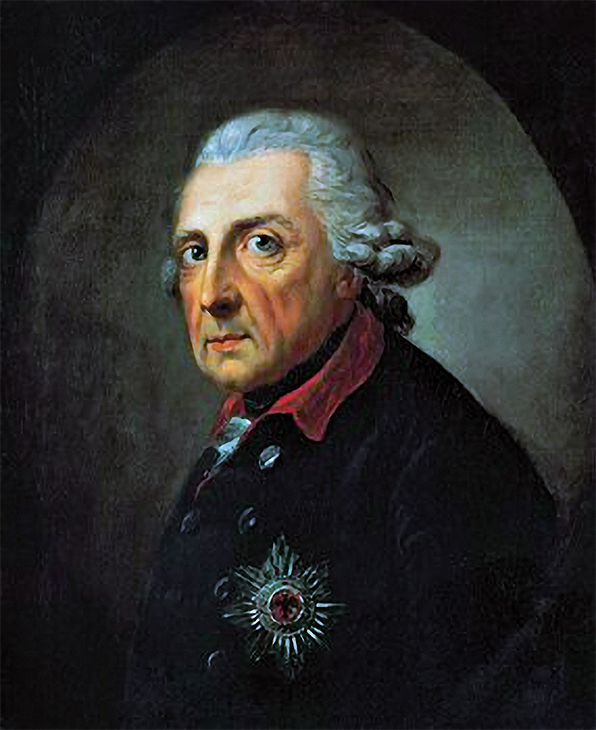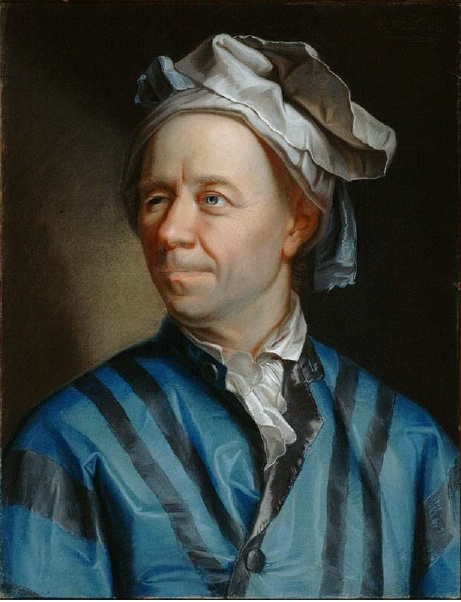From the first moment it all sounded very promising. A biography about a mathematical genius in the enlightenment period – thus checking off three of my favourite topics in just the book’s title already. With some caveats, I wasn’t disappointed.
While not too well-known in popular culture, it is hard to overstate Euler’s accomplishments in the sciences with far-reaching consequences until today. One could be forgiven for finding the Wikipedia page ‘List of things named after Leonhard Euler‘ quite intimidating. My younger brother, who studies mathematics in Switzerland, tells me that it’s a bit of an inside joke to reference ‘the complete works of Euler’ when asked for a source, as his work was so incredibly wide-ranging that it captures just about anything.
Euler’s genius propelled him to the upper echelons of the European Enlightenment’s academic and royal circles where he would regularly converse with other revered figures and luminaries such as Voltaire, Isaac Newton, Moses Mendelssohn, Gotthold Ephraim Lessing, Frederick II and Catherine the Great, as well as of course his fellow mathematicians such as the Bernoullis and his own protégé Lagrange. He worked at the great scientific institutions of the time in Basel, Berlin and St. Petersburg, where he lectured and exchanged letters in Latin, French, German and English.
Impeded by poor eye-sight, which eventually turned into blindness in 1766 at age 56, Euler was eventually surgically treated in 1771 by Baron Michael Johann Baptist von Wenzel, who had become the oculist to King George III. The risky operation successfully removed the cataract from his left eye in a newly developed procedure which had recently helped composer Johann Sebastian Bach who underwent two such surgeries in Paris. When his blindness finally returned, he proclaimed ‘One more distraction removed!‘. Despite his long-time blindness, which was only marginally improved through surgery for a brief time, Euler was able to perform fantastically complicated algebraic computations in his head and, for instance, provided among the most accurate approximations to the speed of sound and the speed of light.
By investigating the frequency and pitch of organ pipes, Newton estimated the speed of sound to be around 968 feet per second, a result first published in his famous book Principa Mathematica in 1687. In the second edition, he later revised this estimate to 1020 feet per second in 1713. Euler was certain that the actual number should be higher and calculated his own estimate in his Tentamen novae theoriae musicae between 1725 and 1727, arriving at 1134.8 feet per second, which was slightly high but remarkably close to the accurate measure of 1125.8 feet per second.
Especially during his time in Berlin, Euler made some enemies by criticizing Wolffian philosophy and science during the German Aufklärung. In a pamphlet titled Sapare Aude! (Dare to know!), which later became the motto of the Enlightenment under Emmanuel Kant, Euler rejected parts of Wolff’s 1720 work Rational thoughts on God, the world, and the soul of man, and things whatsoever outright. His main criticism was directed at the purported indivisibility of monads, as first described by Leibniz. Even though he more often found himself on the other side of such arguments, Wolffians protested his criticism here, arguing that infinity was a characteristic of God and not matter. Euler rejected this serious religious criticism as frivolous.

Euler’s stance towards religion was difficult. While he considered himself a religious man, of the Calvinist sort, his views often contradicted the mainstream, contributing to his unpopularity among free-thinking members of Frederick’s court. Frederick the Great was King of Prussia from 1740 until 1786. He proclaimed himself a free-thinker and maintained that his subjects could say what they pleased as long as they obeyed him. He thought that this obedience required the sort of guidance and discipline that religion provided, while making clear that no one religion had the superior claim. Frederick saw Euler’s position as important in part to have better relations with the French Calvinists in Berlin.
More broadly, Euler left a deep impression on most who interacted with him. It is said that ‘commoners’ found him vivacious; that in conversation he could be animated charming, occasionally playful, and a good story-teller with a sense of humour. Like Leibniz, who was famed for his encyclopedic knowledge, Euler was astonishingly erudite across fields including the classics. At the academies in Saint Petersburg and Berlin, Euler interacted beyond mathematics and the exact sciences in culture, economics, law, politics, religion, and society.
Frederick II of Prussia and Catherine II of imperial Russia assigned Euler royal tasks vital to the growth of commerce, trade, exploration, empire, and the centralizing state; these duties included developing a more exact astronomy, cartography, and geodesy. The goal was at the same time to advance artillery, shipbuilding, bridge construction, and instrument building – especially that of clocks, thermometers, microscopes, and telescopes, all of which were essential to making discoveries in the sciences. Outside the fields of science, he devised plans for state lotteries and pensions.
With the Seven Years’ War raging in Europe and Euler’s farm in Berlin-Charlottenburg ransacked by advancing Russian troops, General Ivan Petrovich Saltykov and Empress Elizabeth of Russia paid him the exorbitant sum of 4000 roubles in 1760. This showed Euler’s continued good relations with Russia and with the political situation there stabilising after Catherine the Great ascended the throne, Euler accepted an invitation to return to the St. Petersburg Academy in 1766. Receiving a 3000 ruble annual salary, a pension for his wife, and the promise of high-ranking appointments for his sons constituted an ‘offer he couldn’t refuse’ at the time . All his requests were granted and he spent the rest of his life in Russia.
In 1778, Euler famously generalised Fermat’s criterion, which states that non-square integers, which can written as 4n + 1 are prime only when they can be represented as the sum of mutually prime square (also known as Pythagorean primes). His generalisation notes that odd numbers, which can be written in only one way as $latex x+Ny^2 $, for all positive integers N, which can’t be written as ab + bc + ac for distinct positive integer a, b, and c and with x and y rational, are prime. Excluding trivial cases, Euler gave 65 such numbers between 1 and 1848, discovering previously unknown prime numbers larger than $latex 10^7$ along the way. With N = 1848 for example, this gives the prime number $latex 18518809=197^2+1848\times100^2 $. Remarkably, even though Euler searched up to 10’000, he found no more such ‘convenient numbers’ N.
As his international fame grew, Euler became one of the first foreign members of the American Academy of Arts and Sciences in January of 1782. It his hard to exaggerate Euler’s extraordinary accomplishments and renown at his time. The book “Mathematical Genius in the Enlightenment” not only gives a good sense of this but also shows how research was conducted during the Enlightenment period. The various forces of politics, militarism, religion and idealism among aristocratic patrons drove the direction of science. The increasingly liberal views and open-mindedness throughout Europe brought by the Enlightenment movement allowed the sciences to flourish.
In the morning of September 18th 1783, just after hearing of the success of the Montgolfier brothers in launching balloon ascents in Paris, Euler experienced spells of dizziness, which have returned with increasing frequency. He asked his wife to confirm whether he has already had one or two cups of tea. After learning that it was his first, he asked for a second but suddenly dropped his pipe, exclaiming “Meine Pfeife!”. He had suffered a stroke and after trying to bend down and pick up his pipe unsuccessfully lost consciousness, which he never regained. The great Leonhard Euler died the same day at his home in Saint Petersburg, where he is still buried today.
As someone with a scientific background and a keen interest in mathematics, I would have hoped for more details on his discoveries but I can imagine that omitting lengthy mathematical proofs (beautiful as they may be!) was a deliberate editorial choice by the author Roland S. Calinger, professor emeritus of history at the Catholic University of America. Overall, the book is a detailed biography of maybe the greatest mathematician and theoretical physicists of all time and one can’t help but be reminded of Newton’s famous quote: “If I have seen further it is by standing on the shoulders of giants.” It took true geniuses like Euler to advance human discovery and without him many may only have been made decades or centuries later if ever. Like Newton said about others before him, one can only be thankful for Euler’s work and dedication.
